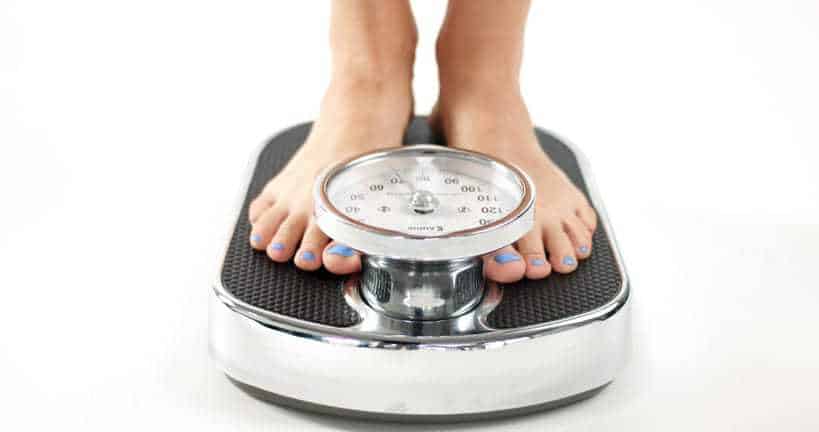Technically, water doesn’t contain any calories so there’s no way you can gain weight from drinking it, right? While that’s true, there are some things you need to know.
No, you cannot gain weight from drinking water. Water does not contain calories, therefore it is impossible for water to cause weight gain. It does, however, play an important role in the transportation of calories to your cells which can aid in weight loss.
There have been numerous studies conducted around the consumption of water as it relates to weight loss and how it effects our metabolism.
The data is pretty conclusive and worth checking out if you have some extra time. For those of you looking for a quick summary of the relationship between water and weight, I’ve got you covered.
Keep reading…
Weight gain vs. water retention (how to know the difference)
“Why do I gain weight when I drink water?”
This is a question I get asked all the time! And, I completely understand why it might feel as though you’re gaining weight. However, what you’re likely experiencing is water retention.

Since water doesn’t contain carbohydrates, protein, or fat (i.e. doesn’t contain calories), it is impossible for you to gain weight from drinking it. However, depending on your diet, it is possible for your body to retain more water which can feel like you’ve gained weight.
Identifying whether you’re retaining water or gaining weight can be a challenge. There are some signs, though, that indicate your body is holding onto excess water.
Things like irritability and stress, constipation, and chronic fatigue are all signs that you may be retaining too much water.
If you feel like this is something you may be experiencing, the best place to look for a solution is in your every day habits. A simple change to your diet can likely resolve the problem.
Chances are, the following changes to your diet will help reduce the amount of fluids your body is retaining.
Eat less salt
While the evidence behind it is mixed, sodium (salt) seems to cause the body to retain more water. Sodium binds to water in the body which helps ensure a balance of fluids in and outside the cells.
It’s an important relationship for a functioning body, but too much sodium can make the body hold onto more water than you’d like and leave you feeling heavier.
One of the easiest ways to curb water retention and feel less heavy is by reducing the amount of salt in your diet.
Eat more potassium
Potassium also plays an important role in our body’s ability to function. What’s also interesting, potassium and sodium have a symbiotic relationship that effect both energy production and fluid balance.
Part of the kidney’s job is to remove excess levels of sodium through our urine. In doing so, it also gets rid of potassium.
“If potassium levels are low, the body tries to hoard it, which also means hanging onto sodium. Water follows sodium, leading to an increase in the amount of water in the body and the volume of blood in circulation.”
Harvard Health Publishing
One way to ensure the body flushes out excess sodium and prevent water retention is by eating more potassium.
There are a variety of healthy foods which provide great sources of potassium. If your potassium levels are low, try incorporating some bananas, sweet potatoes, or leafy greens into your diet.
Consume less simple (refined) carbohydrates
Another great way to keep water retention at a minimum is to avoid eating refined carbohydrates. Refined (or processed) carbs, like white bread and white rice, tend to cause big spikes in blood sugar which result in increased insulin levels.
When your body experiences a spike in insulin it essentially activates sodium retention in your kidneys. And, as mentioned previously in this article, increased levels of sodium mean more water retention.
Additionally, higher levels of insulin have been shown to increase the production of nitric oxide, the same chemical that “relaxes” your blood vessels. This relaxation of blood vessels also translates into a higher volume of water in your body.
Try substituting refined carbs for complex carbohydrates, like whole grains and vegetables. These should help keep you from retaining water and feeling like you gained weight.
Drink more water
I know how it sounds… drink more water to retain less of it. It’s a counter-intuitive approach to reducing water retention, but it works!
Not drinking enough water can cause your body to go into “survival-mode” and store excess water in the event you’re unable to “find” more. It’s likely an evolutionary trait that, for centuries, helped humans survive in difficult conditions.
Obviously things have changed. Water, for many of us, is readily available so the need for our body to store excess water isn’t as necessary.
The easiest way to combat this is by drinking more water and drinking it more frequently. For me, I try to drink a glass of water every hour or two, and I make sure to bring a bottle of water with me when I go places.
Don’t overthink it, just make sure to hydrate!
Not drinking enough water can actually cause you to gain weight
Water plays a significant role in our body’s ability to perform a variety of essential functions, many of which can impact weight gain/weight loss.
The transportation of nutrients and hormones throughout the body, temperature regulation, metabolism, these are all things that require water to function properly.
It’s pretty amazing how many things are dependent on you drinking enough fluids throughout the day.
Metabolism, in particular, is the chemical process which provides energy to keep the body going. Having a healthy and functioning metabolism is critical for losing weight, too.
You’ve likely heard people talk about having a “slow metabolism”, or in some cases, having a “fast metabolism”. What they are really referring to is the rate at which their body burns calories.
If you have a slow metabolism, your body isn’t as efficient at burning calories and can make gaining weight a lot easier. Alternatively, having a fast (or healthy) metabolism means your body is burning calories efficiently and can greatly improve your ability to lose weight.
There is some pretty strong evidence, too, that shows the correlation between how much water we drink and the efficiency of our metabolism. It’s pretty clear that drinking plenty of water throughout the day is critical for weight management.
The flip side of that, “chronic dehydration” (or a water deficiency), can wreak havoc on your body’s metabolism.
When we don’t drink enough water our body compensates by slowing down our metabolic processes. How quickly we get rid of waste in our cells, how quickly our cells repair, and the rate we burn food for energy is all effected. This can ultimately lead to weight gain.
Dehydration is really common, too… many people are dehydrated without even knowing it.
Keep your metabolism healthy by making sure you drink enough water. And, in doing so, you’ll find it makes losing weight significantly easier.
Conclusion
Bottom line, drinking water will not cause you to gain weight. The fact that water doesn’t contain any calories is the sole reason why it’s impossible to gain weight from drinking it.
There are, however, certain foods and minerals that can cause your body to retain more water and create the illusion of weight gain.
Making sure your diet isn’t too high in sodium (salt), ensuring your getting enough potassium, and not eating too many refined carbohydrates will all effect how much water your body holds onto.
Additionally, it’s important to understand the influence water plays on our bodies. Especially the relationship between water intake and our metabolism.
Drinking enough water during the day is crucial for a healthy, functioning metabolism. And, a healthy metabolism plays a big role in our body’s ability to burn calories.
How many calories you’re burning vs. how many calories you’re consuming is, ultimately, the only way to lose or gain weight.
Happy hydrating, family!
